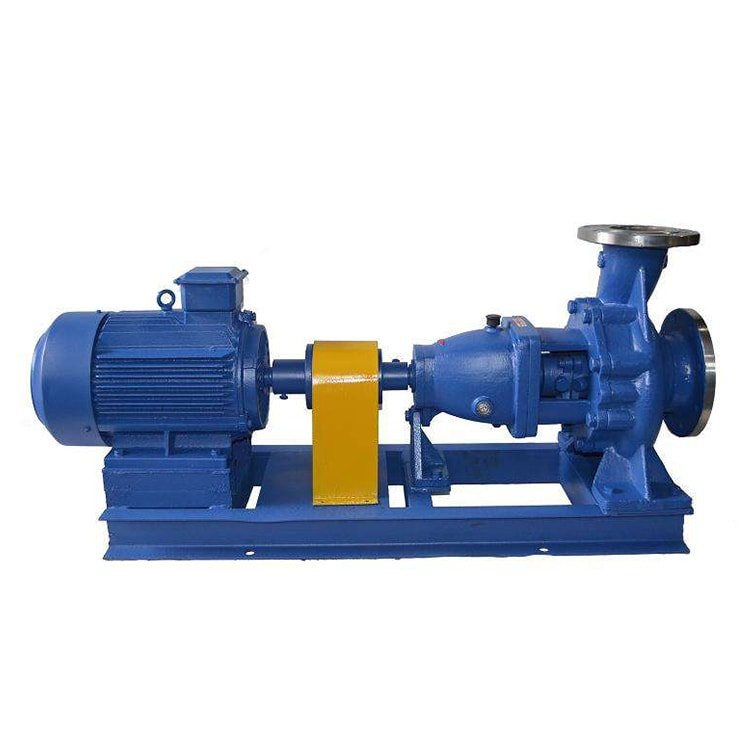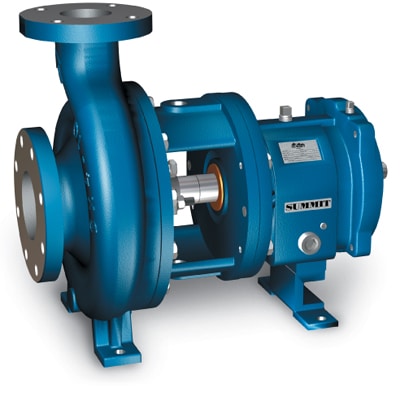Powering Progress: A Deep Dive into Pumps
Pumps are versatile mechanical devices that move liquids or gases from one place to another, serving as the unsung heroes behind a wide range of essential functions in our modern world. They come in various types, from centrifugal pumps for water distribution to positive displacement pumps for high-viscosity fluids. Pumps play pivotal roles in industries like water management, oil and gas, chemicals, and healthcare, ensuring the smooth flow of fluids and enabling crucial processes. Continuous innovation in pump technology is driving greater efficiency, sustainability, and reliability, further solidifying their importance in powering progress.
Types of Pumps.

Pumps, the unsung heroes of modern engineering, play a vital role in our daily lives. From ensuring the availability of clean drinking water to powering industries and even fueling space exploration, pumps are indispensable in various applications. These remarkable machines are the driving force behind the movement of liquids and gases, making them a cornerstone of countless industries. In this article, we will take a comprehensive look at pumps, exploring their types, functions, applications, and the pivotal role they play in driving progress.
Meaning of Pump
A pump is a mechanical device designed to move or transfer fluids, such as liquids or gases, from one location to another. It operates by creating a flow and pressure differential, which propels the fluid through pipes, hoses, or other conduits. Pumps are widely used in various industries and applications, including water supply and distribution, wastewater management, oil and gas extraction, chemical processing, pharmaceutical production, and many others. A pump is a fundamental mechanical device that facilitates the movement and transfer of fluids, making it a cornerstone of modern engineering and industry.
Types of Pumps
Pumps come in a multitude of types, each designed for specific applications. Understanding these various types is crucial to appreciate their versatility:
a. Centrifugal Pumps: These are the most common type of pumps and are often used for transferring liquids like water and chemicals. Centrifugal pumps work on the principle of creating a centrifugal force to move fluids by converting rotational energy into kinetic energy.
b. Positive Displacement Pumps: Unlike centrifugal pumps, positive displacement pumps move fluid by trapping a fixed amount and displacing it into the discharge pipe. These are ideal for applications that require a constant flow rate, such as hydraulic systems and high-viscosity fluids.
c. Diaphragm Pumps: Diaphragm pumps use a flexible diaphragm to create a reciprocating action, resulting in the movement of fluid. They are commonly used in applications that require precise control over the flow rate and are often found in the pharmaceutical and food processing industries.
d. Submersible Pumps: These pumps are designed to be submerged in the fluid they are pumping, making them suitable for applications like sewage disposal, groundwater extraction, and deep-well pumping.
e. Gear Pumps: Gear pumps rely on the meshing of gears to move fluid. They are known for their ability to handle high-viscosity fluids and are commonly used in the automotive and aerospace industries.
Uses of Pump
Pumps are versatile mechanical devices with a wide range of uses across various industries and applications. Here are some of the common uses of pumps:
- Water Supply and Distribution: Pumps are crucial for supplying clean water to homes, businesses, and industries. They help lift water from wells, reservoirs, or groundwater sources and distribute it to where it's needed for drinking, irrigation, and industrial processes.
- Wastewater and Sewage Management: Pumps are used to transport wastewater and sewage from homes and businesses to treatment facilities for purification or safe disposal. They help maintain public health and protect the environment.
- Oil and Gas Industry: Pumps are integral to the extraction, refining, and transportation of oil and gas. Submersible pumps are used for offshore drilling, while pipeline pumps transport crude oil and refined products over long distances.
- Chemical Manufacturing: Pumps play a crucial role in the handling and transfer of chemicals within manufacturing facilities. They ensure precise dosing and mixing of chemicals for various processes.
- Agriculture: Pumps are essential for irrigation systems, helping deliver water to fields to promote crop growth. They are also used in livestock operations for tasks like water distribution and waste management.

Importance of Pumps
- Pharmaceuticals and Healthcare: Pumps are used in pharmaceutical production and healthcare settings for accurate dosing and delivery of medicines and fluids to patients. This ensures the safe and effective treatment of illnesses.
- Manufacturing and Processing: In manufacturing and processing industries, pumps power machinery and equipment, facilitating the production of goods and materials essential to modern life.
- Environmental Cleanup: Pumps are instrumental in environmental remediation efforts, helping to extract contaminated groundwater and transport effluents to treatment facilities.
- Maritime and Offshore: Pumps are critical on ships and offshore platforms for tasks like ballast water management, firefighting, and cargo transfer, contributing to the functioning of the maritime industry.
- Construction: In construction, pumps are used for tasks such as concrete pumping, making it possible to transport concrete to construction sites efficiently.
- Energy Efficiency: Pumps contribute to energy efficiency by ensuring the circulation of coolant in heating, ventilation, and air conditioning (HVAC) systems, which helps maintain optimal temperatures in buildings and industrial processes.
- Firefighting: Fire pumps provide high-pressure water or foam for firefighting, safeguarding lives and property during emergencies.
- Mining: Pumps are essential in mining operations for dewatering mines, transporting slurry, and processing minerals, which are crucial for the extraction of valuable resources.
- Space Exploration: Even in space exploration, pumps play a role, such as in rocket propulsion systems and life support systems for astronauts.
Functions of Pump
Pumps perform a wide range of functions that are vital to numerous industries and processes:
a. Transportation of Liquids: One of the primary functions of pumps is to transport liquids from one place to another. This includes pumping water for irrigation, distributing fuel to gas stations, and transferring chemicals in industrial processes.
b. Boosting Pressure: Pumps are used to increase the pressure of liquids or gases, allowing them to flow through pipelines or systems with higher pressure requirements. This is crucial in water distribution systems and oil refineries, where pressure must be maintained over long distances.
c. Mixing and Agitation: Some pumps are designed for mixing and agitation purposes. They are used in industries like pharmaceuticals and chemicals to ensure proper blending of substances.
d. Cooling Systems: Pumps are integral to cooling systems, such as those in automobiles and industrial machinery, where they circulate coolant to dissipate heat and maintain optimal operating temperatures.
e. Environmental Remediation: Pumps are employed in environmental cleanup efforts, including groundwater extraction at contaminated sites and sewage treatment plants.

Applications of Pumps
The diverse applications of pumps span across several key industries, each benefiting from these engineering marvels in unique ways:
a. Water and Wastewater Management: Pumps are essential for supplying clean water to homes and industries and for removing wastewater and sewage for treatment. Municipal water treatment plants and sewage systems rely on pumps to maintain proper functioning.
b. Oil and Gas Industry: The extraction, refining, and transportation of oil and gas rely heavily on pumps. Submersible pumps are used for offshore drilling, while pipeline pumps ensure the efficient movement of crude oil and refined products over vast distances.
c. Chemical Manufacturing: Pumps play a critical role in handling and transferring chemicals within manufacturing facilities, where precision and safety are paramount.
d. Agriculture: Irrigation systems, which are crucial for global food production, rely on pumps to deliver water to crops efficiently.
e. Pharmaceuticals and Healthcare: The pharmaceutical industry utilizes pumps for the precise dosing of medicines and the production of vaccines.
f. Manufacturing and Processing: Various manufacturing processes depend on pumps for tasks such as hydraulic presses, die casting, and paint spraying.
g. Aerospace and Automotive: In these industries, pumps are used for fuel delivery, lubrication, and hydraulic systems, ensuring the safe and efficient operation of aircraft and vehicles.
Innovation and Advancements
Pump technology continues to advance, driven by the need for increased efficiency, reduced environmental impact, and improved reliability. Recent innovations in the world of pumps include:
a. Smart Pumps: Incorporating sensors and automation, smart pumps can monitor and adjust their performance in real-time, optimizing energy consumption and reducing maintenance costs.
b. Energy-Efficient Designs: Modern pumps are designed with a focus on energy efficiency, using advanced materials and improved hydraulic designs to reduce energy consumption.
c. Environmental Considerations: Eco-friendly pumps are being developed to minimize environmental impact, with a particular emphasis on reducing emissions and waste in industrial processes.
d. Digital Twin Technology: Pumps can now be monitored and analyzed using digital twin technology, allowing for predictive maintenance and minimizing downtime.
e. Miniaturization: In some applications, the demand for smaller and more compact pumps has led to innovations in miniaturization, making them suitable for portable devices and medical equipment.
In the grand tapestry of modern life, pumps are the often-overlooked threads that hold everything together. From ensuring we have clean water to drink to powering the machinery that fuels our industries, pumps are indispensable. Their diverse types, functions, and applications showcase their adaptability to meet the needs of various sectors. As technology continues to advance, pumps will play an even more critical role in shaping the future, offering greater efficiency, sustainability, and reliability. In the end, pumps are the unsung heroes driving progress in ways we may not always notice but certainly cannot live without.



